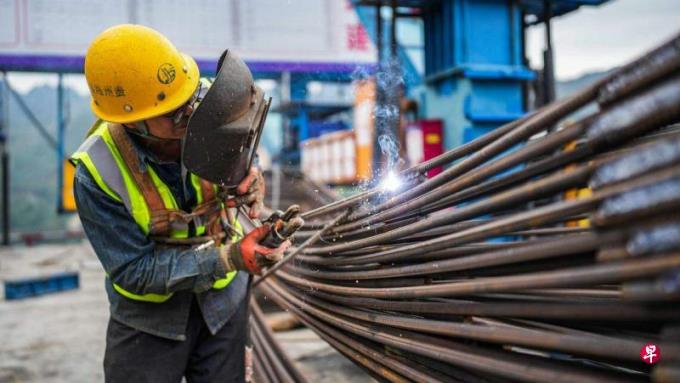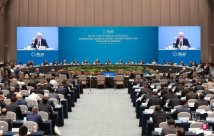
Multiple local governments in China have issued special recycling bonds this month to accelerate the resolution of local hidden debt.Analysis pointed out that high local bonds are one of the most severe challenges facing the current revitalization of the economy, but when local governments issue special recycling bonds, it should also explore new sources of income, which is the long -term way.
China Bond Information Network shows that within eight days from October 6th to October 13th, 17 provinces and cities including Inner Mongolia, Tianjin, Liaoning, and Chongqing disclosed special recycling bond issuance plans to repay stock debt.The total bond issuance reached 726.25 billion yuan (RMB, the same below, S $ 136.3 billion).
Of the 17 provincial cities, Inner Mongolia, Yunnan and Liaoning (including Dalian City, Liaoning Province, which are issued alone), have issued more than 100 billion yuan, Guizhou exceeds 80 billion yuan, and Hunan exceeds 60 billion yuan.
Earlier sources said that China will allow local governments to replace hidden debt to explicit debt by issuing special recycling bonds to slowly release debt risks.The amount of debt issuance will be tilted to 12 high -risk provinces including Guizhou, Hunan, Jilin, Anhui and Tianjin.
At present, seven provinces and cities including Inner Mongolia, Yunnan and Liaoning are issued in accordance with the top or super specifications of local government debt limit space.According to this trend, the scale of special re -financing bond issuance in this round of local governments will probably break through the market expectations of 1.5 trillion yuan, exceeding the sum of two rounds of issuance from 2020 to 2022.
During the three -year crown disease epidemic, the prevention of epidemic prevention expenses, decreased investment returns, and decreased land revenue have greatly exacerbated China's local fiscal burden.Officials have not disclosed the hidden debt of local governments, which are called "urban investment bonds", but according to the International Monetary Fund (IMF), the total number of local hidden debt has increased from 40 trillion yuan in 2019 to 660,000 at the end of 2022100 million yuan.The Guizhou Provincial Government's Think Tank published an article in April this year, exposing that the local "promotion of debt work is extremely difficult."
Faced with the risk of continuously fermented local debt, at the end of July, the Politburo meeting of the Communist Party of China proposed that it is necessary to effectively prevent and resolve the risk of local debt and formulate a package of debt -based solutions.The executive meeting of the State Council held on September 20 also emphasized that solving the problem of corporate accounts arrears, related to the expected production and operation and investment expectations of enterprises, and the continuous recovery of the economy must be highly valued.Provincial governments should be responsible for the work of arrears in the region and quickly solve the problem of government accounts in the government.
Chen Bo, Dean of the Optics Valley Free Trade Research Institute and a researcher at the Liaoning University Free Trade Zone Research Institute, analyzed to Lianhe Zaobao that higher local debt (including hidden debt) is one of the most severe challenges in the current economic recovery.Reinstal financing bonds are effective and should be used to speed up.
Chen Bo also reminded that special funds for debt issuance should be dedicated to avoid precious funds from flowing to him.Local governments should pay off the existing debts as soon as possible, especially for the arrears and liabilities of enterprises, and help private enterprises that have become difficult to get out of their predicament as soon as possible, thereby boosting market confidence.
Compared with other major economies in the world, the liability ratio of the Chinese central government is relatively low, and the financial situation is healthy.Chen Bo suggested that with the limited ability of local government debt issuance, the central government can take more deficits accordingly, becoming the main issuer of bonds, so as to raise funds to support local governments to reduce debt burden.
Lu Xi, assistant professor of the School of Public Policy of the National University of Singapore, pointed out in an interview that the short debt was converted into long debt through special recycling bonds, provided that the local economy could recover within the time of replacement, "otherwise the pain would be painfulDelayed, the subject of undertaking the subject directly became a provincial government, and the damage was more clear. "
Lu Xi believes that the key to solving debt problems is to solve "where the money comes from."In the context of the upper limit of the amount of bonds, the situation of poor local finances, and poor foreign trade situation, a new source of income must be found.
For example, he said that in some monopoly industries, social capital can be introduced through short -term leasing operation rights. By improving the operating efficiency of monopoly assets, he creates cash flow for debt repayment and stimulates the vitality of the private economy.



